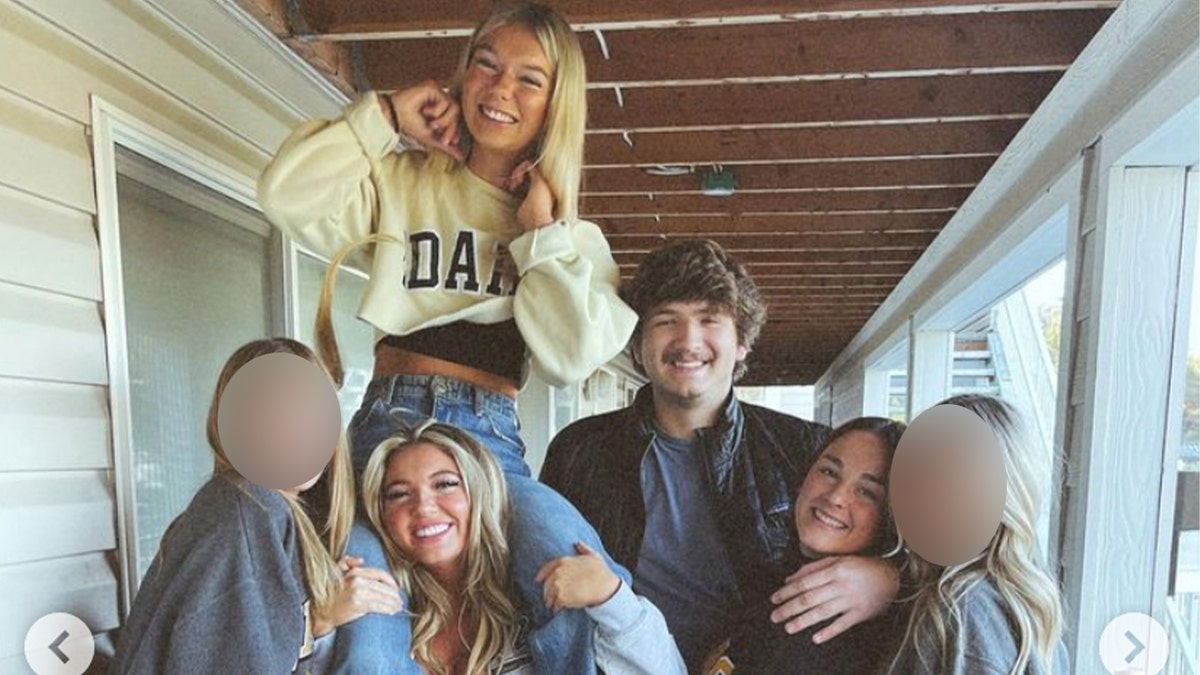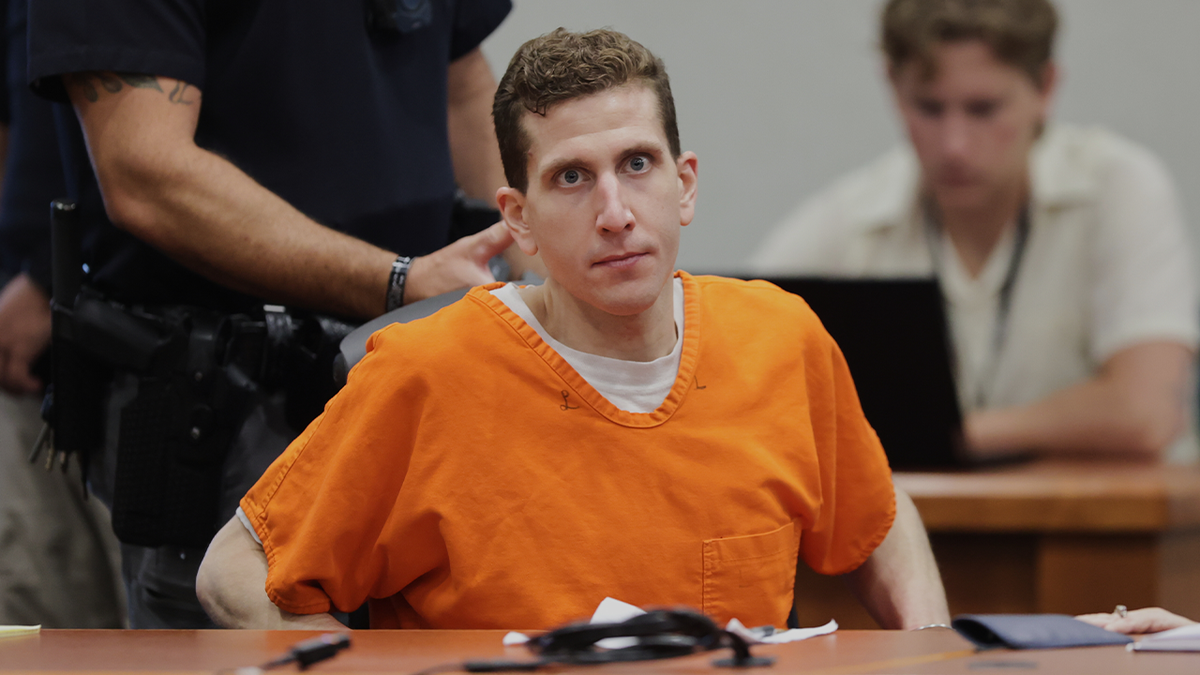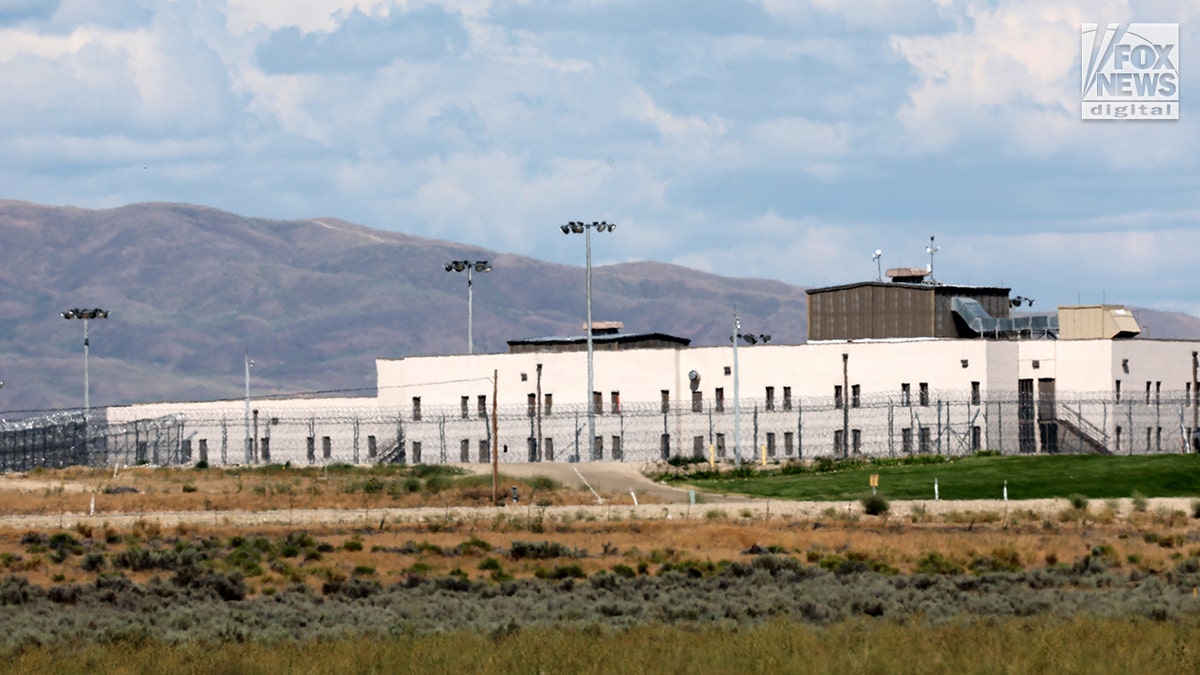NEWYou can now listen to Fox News articles!
Latah County Prosecutor Bill Thompson admitted to a major miscalculation in what the University of Idaho victims’ families should be owed in restitution, telling a judge Wednesday that he would no longer be seeking roughly $27,000 in travel expenses that were not outlined in Bryan Kohberger‘s plea deal — asking the court to award about a tenth of that in funeral expenses instead.
Kohberger’s lawyers noted that the travel expenses were not part of the plea deal after Thompson mistakenly thought they would be covered by a victims’ compensation fund and agreed that the funeral expenses amount to $3,075.58. However, they argued Kohberger still shouldn’t have to pay.
Judge Steven Hippler grilled attorney Elisa Massoth about the terms of the deal and why Kohberger shouldn’t have to live up to them. He ended the hearing without issuing a decision, which is expected to come later in writing.
The judge also revealed that Kohberger had already received a “five-figure” donation to his jail funds. Massoth claimed that it was mostly for communication purposes, although the cost of sending a message at Kohberger’s former jail is just a few cents at a time.
UNIVERSITY OF IDAHO VICTIMS’ FAMILIES ASK JUDGE TO PERMANENTLY BLOCK CRIME SCENE IMAGES

A plea deal is essentially a contract, Hippler said, and as a result, the prosecution can’t seek restitution for travel expenses outside the terms of the deal.
However, he also rejected claims from the defense that Kohberger has no potential future income. There was the unspecified “five-figure” donation, he said, and Kohberger or a relative could potentially profit off of his story in a movie, book or TV deal.
“There’s no way that BK is ever going to profit from any sort of movie or book because Idaho…specifically precludes that,” Massoth countered.
Hippler said that’s not exactly how the law works. Money earned from such a deal would be earmarked to cover debts to the victims if it existed, he said.
“If there’s no debt for those certain things, does the money not go then to the defendant?” he asked.
“That’s not my reading of the code,” Massoth said.
INSIDE THE HORROR: IDAHO FOUR CRIME SCENE PHOTOS REVEAL BLOODY AFTERMATH OF ATTACK

Kohberger did not appear, although lawyers on both sides attended remotely.
His defense had previously said he shouldn’t have to pay up since the victims’ families received money from donors on GoFundMe.
Prosecutors, however, counter that he has “a history” of receiving “compensation” from his family and unidentified third parties while behind bars — money they say should go toward the victims’ families.
At issue was roughly $27,000 to be split between the parents of Kaylee Goncalves, 21, and the mother of Madison Mogen, her 21-year-old best friend, to cover travel and other expenses incurred during Kohberger’s case.
He killed the two young women in an upstairs bedroom at their rental home in Moscow, Idaho, then went downstairs to kill their roommate, 20-year-old Xana Kernodle, and her sleeping boyfriend, Ethan Chapin, also 20.

The sources of Kohberger’s prison funds are not immediately clear, but throughout his case, supporters have claimed to have sent money to his commissary in posts on social media.
Prosecutors filed his jailhouse financial history under seal.
Paul Mauro, a retired NYPD inspector and Fox News contributor who has been following the case, said some of the money could be coming from female supporters, but large sums could come from media outlets seeking exclusive interviews.
Kohberger has never told his story, and told the judge he would “respectfully decline,” when given the opportunity to speak at his sentencing.
He said it’s not unrealistic to think that someone would offer Kohberger between five and six figures to break his silence.
If Kohberger does eventually speak out, he likely will not be able to profit, Fox News Digital reported previously. Like New York’s 1977 “Son of Sam” law, Idaho has legislation that helps prevent criminals from making money through detailing their offenses.
According to Idaho law, if a criminal signs a deal to profit from telling their crime story — including through a movie, book or magazine article — the profits first go to the state treasurer to be sent to an escrow account. Victims or their families, who must be notified, can claim the money through civil lawsuits within five years.
As part of his plea deal to avoid the death penalty, Kohberger agreed to pay more than $250,000 in criminal fines and fees plus another $20,000 in civil judgments to each victim’s family.
His lawyers argued last month that he shouldn’t have to pay another roughly $20,000 to Goncalves’ parents or nearly $7,000 more to Mogen’s mother, Karen Laramie, in travel and accommodation expenses requested by the prosecution.
CLICK HERE TO DOWNLOAD THE FOX NEWS APP
“The additional funds sought do not qualify as an economic loss under Idaho Code 19-5304 because Steve and Kristi Goncalves and Karen Larmie (sic) received extensive funds through multiple GoFundMe campaigns that specifically asked for and covered the expenses sought,” attorneys Anne Taylor, Elisa Massoth and Bicka Barlow wrote in a court filing.
Fox News’ Sophia Compton contributed to this report.



